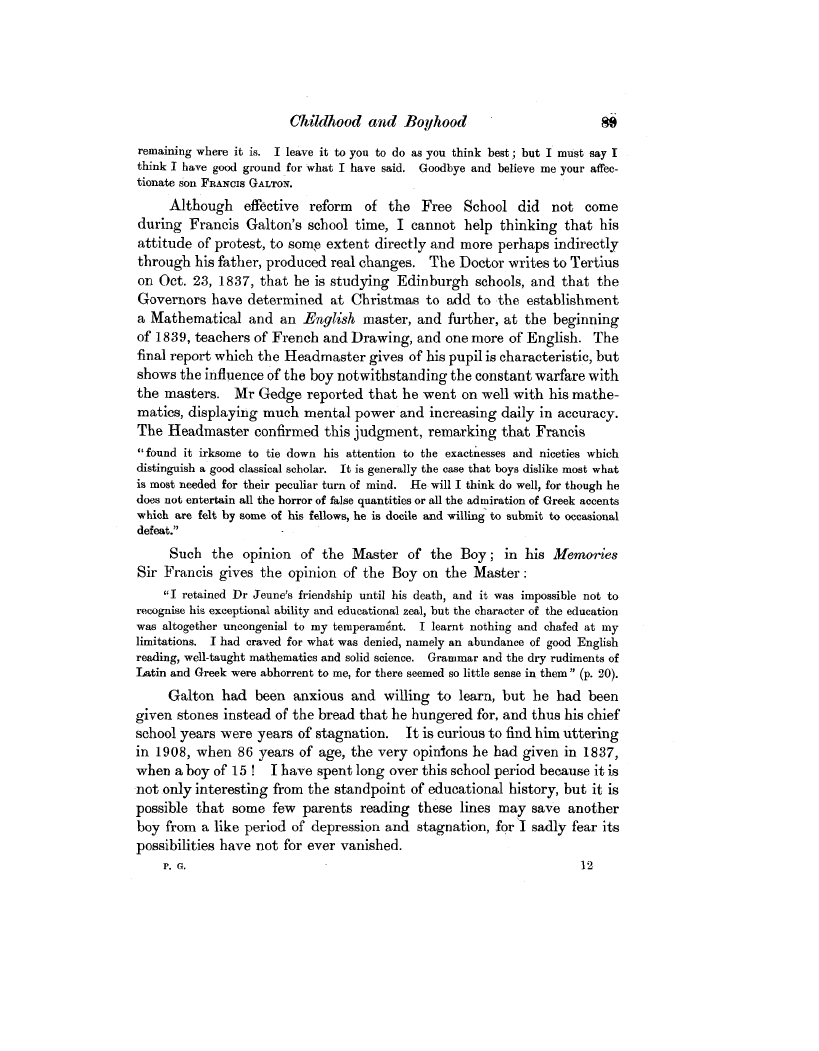| ||||||

OCR Rendition - approximate
Childhood and Boyhood 89 remaining where it is. I leave it to you to do as you think best ; but I must say I think I have good ground for what I have said. Goodbye and believe me your affec tionate son FRANCIS GALTON. Although effective reform of the Free School did not come during Francis Galton's school time, I cannot help thinking that his attitude of protest, to some extent directly and more perhaps indirectly through his father, produced real changes. The Doctor writes to Tertius on Oct. 23, 1837, that he is studying Edinburgh schools, and that the Governors have determined at Christmas to add to the establishment a Mathematical and an English master, and further, at the beginning of 1839, teachers of French and Drawing, and one more of English. The final report which the Headmaster gives of his pupil is characteristic, but shows the influence of the boy notwithstanding the constant warfare with the masters. Mr Gedge reported that he went on well with his mathematics, displaying much mental power and increasing daily in accuracy. The Headmaster confirmed this judgment, remarking that Francis " found it irksome to tie down his attention to the exactnesses and niceties which distinguish a good classical scholar. It is generally the case that boys dislike most what is most needed for their peculiar turn of mind. He will I think do well, for though he does not entertain all the horror of false quantities or all the admiration of Greek accents which are felt by some of his fellows, he is docile and willing to submit to occasional defeat." Such the opinion of the Master of the Boy ; in his Memories Sir Francis gives the opinion of the Boy on the Master "I retained Dr Jeune's friendship until his death, and it was impossible not to recognise his exceptional ability and educational zeal, but the character of the education was altogether uncongenial to my temperament. I learnt nothing and chafed at my limitations. I had craved for what was denied, namely an abundance of good English reading, well-taught mathematics and solid science. Grammar and the dry rudiments of Latin and Greek were abhorrent to me, for there seemed so little sense in them" (p. 20). Galton had been anxious and willing to learn, but he had been given stones instead of the bread that he hungered for, and thus his chief school years were years of stagnation. It is curious to find him uttering in 1908, when 86 years of age, the very opinions he had given in 1837, when a boy of 15 ! I have spent long over this school period because it is not only interesting from the standpoint of educational history, but it is possible that some few parents reading these lines may save another boy from a like period of depression and stagnation, for l sadly fear its possibilities have not for ever vanished. P. G. 12
|